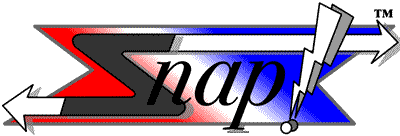|

SFT
eliminates the well-known problem of bags being often tough to open.
Even
in thin, economy, single-use bags---e.g. laundry, trash, carry, produce,
sandwich, freezer, leaf, utility---in short, any flat sidewelded bag
or any side-gusseted bag.
"Opens
first time, every time"™ can now be offered in economy bags,
the biggest market segment.
Licensing
available for qualified manufacturers, marketers, retailers, supermarkets,
and corporate users.
End-user advantages for marketing:
Hygiene advantage
and
Economic advantage
lead to your advantage through:
Industry strategic implications
Check: is your market
problem-free?
About us
Definitions
Environmental responsibility
Links |
|
SFT home GAIN
MARKET SHARE PRODUCT
GROUPS LICENSING CONTACT sitelist
for MANUFACTURERS
You're not just selling resin. You're selling
bags. Bags can be high or low quality. SFT offers you
the chance to License the SNAP™ brand and technology,
to add quality without adding price, to build your market share.
Different markets look
for high or low price; but no market wants a lower quality
for the same price. Nobody goes looking to buy the worst
bag.
Every bag you sell is
either for use by the buyer's staff, or for
resale
to another
corporation,
or
for
retail
sale.
Every
bag is ultimately used by a person.
Good quality outsells
bad quality at the same price. That's obvious.
Therefore, your sales
are eventually
determined
by
how well your bag performs in the hands of the end-user,
regardless of whether the end-user actually buys the bags
or the employer
buys them.
How well the bag opens will determine how much
time is wasted by the end-user. This determines efficiency
and
satisfaction.
If the end-user is the buyer, the motivation
is clear for choosing a bag that won't fight back, that will
open "first time, every time"™.
Likewise, if the end-user is an employee of
a business or institution that buys the bags, then better
bags
clearly are of benefit because they reduce wasted time, reduce
wasted materials, improve efficiency, and in short save money.
These
examples show why your customers need better bags, need SNAP™ bags.
They will see this need eventually, whether you tell them
or not, because
they already have a latent need.
Here are some examples, but see also
the pages directed at marketers, retailers, supermarkets,
corporate customers and consumers who could be your customers.
Expense-side bag uses:
Just because it's expense-side doesn't mean
nobody cares! It may mean it takes longer for the actual
buyer to catch on, but eventually they will.
Example 1: Let's consider a custodial
department employee whose gross salary with overhead, pension
contributions, etc. is $20K. The employee's time costs
you about 1/3 of a cent per second.
Give
that
employee
a
bad bag
that
wastes 7 seconds, and it costs you 2 cents. If that wasted
time was not more enjoyable for the employee than the rest
of their work cycle, you can add more waste because of
frustration. I.e. the bad bag may waste even more time
than it takes just to get it open. The wasted
time could be worth more than you paid for the bag. (And
yet
the better bag will cost you
about the
same, but save the 'hidden' costs so it is almost like
getting the bag for free.)
If that bad bag was a deli bag, you probably
more than doubled your actual cost of the bag.
Example 2: a City Council supplies doggie-doo
bags in parks. They are notoriously hard to open. Some citizens
don't bother picking up dog mess because the bags won't open.
Some use the bags without opening, which means they can't
pick up anything big or they need several to do the job. Some
citizens
take handfuls home so they can open them where it's
warm, and
then carry them back to the park. Either way, bad bags actually
cost much more than their apparent price. Probably 2 to 5
times as much, and if the bad bags are resulting in a mess
that Council
employees have to deal with then it's an even greater cost.
But SNAP™ technology applied to
doggie-doo bags will mean bags that open promptly in
all weather, even if the user is wearing gloves. These
better bags
will improve citizen compliance
with dog-clean-up bylaws, and will give overall savings
as well.
|
|